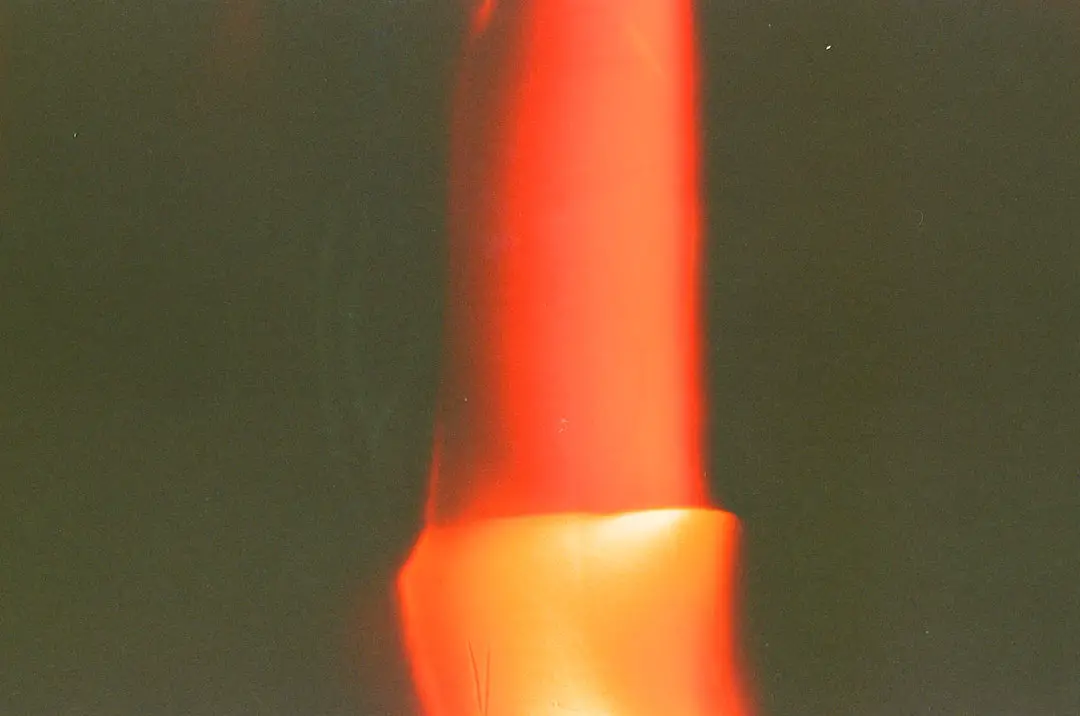Support our educational content for free when you purchase through links on our site. Learn more
Is 51 Decibels Loud for a Dehumidifier? [2024]
Have you ever wondered how loud a dehumidifier can be? If you’re in the market for a new dehumidifier, you might be concerned about the noise it will produce. After all, nobody wants a noisy appliance disrupting their peace and quiet. In this article, we’ll answer the burning question: is 51 decibels loud for a dehumidifier? We’ll delve into the factors that contribute to a dehumidifier’s noise level, provide expert advice on finding a quiet dehumidifier, and recommend some top-rated models. So, let’s dive in and discover the quietest dehumidifiers on the market!
Table of Contents
- Quick Answer
- Quick Tips and Facts
- Background: Understanding Dehumidifier Noise
- Factors Affecting Dehumidifier Noise
- How to Choose a Quiet Dehumidifier
- Top Quiet Dehumidifiers
- Additional Tips for Noise Reduction
- FAQ
- Conclusion
- Recommended Links
- Reference Links
Quick Answer
No, 51 decibels is not considered loud for a dehumidifier. In fact, it falls within the range of normal conversation or background noise in a quiet room. However, the perceived loudness of a dehumidifier can vary depending on factors such as room size, distance from the dehumidifier, and personal sensitivity to noise. If you’re looking for an ultra-quiet dehumidifier, there are models available that operate at even lower noise levels.
When shopping for a dehumidifier, keep in mind that noise output is just one factor to consider. It’s important to find a balance between noise level and performance to ensure you choose a dehumidifier that meets your specific needs. Let’s explore the topic further and provide you with all the information you need to make an informed decision.
CHECK PRICE on: Amazon | Walmart | eBay | Frigidaire Official Website | hOmeLabs Official Website**
Quick Tips and Facts
Before we dive into the details, here are some quick tips and facts about dehumidifier noise:
✅ Dehumidifiers typically produce noise in the range of 40 to 60 decibels (dB).
✅ A decibel level of 50 dB is equivalent to the noise of a quiet conversation or a refrigerator’s hum.
✅ The noise level of a dehumidifier can vary depending on factors such as fan speed, room size, and distance from the unit.
✅ Some dehumidifiers are specifically designed to operate quietly, with noise levels as low as 35 dB.
✅ It’s important to consider both noise level and performance when choosing a dehumidifier.
Now that we have a basic understanding of dehumidifier noise, let’s explore the background and factors that contribute to the noise level of these appliances.
Background: Understanding Dehumidifier Noise

Dehumidifiers are essential appliances for maintaining optimal humidity levels in our homes. They work by drawing in moist air, removing the excess moisture, and then releasing the dry air back into the room. However, this process can generate noise due to the various components and mechanisms involved.
The noise produced by a dehumidifier primarily comes from two sources: the compressor and the fan. The compressor is responsible for compressing the refrigerant, while the fan circulates the air and helps dissipate the heat generated by the compressor. These components, along with other factors, contribute to the overall noise output of a dehumidifier.
Factors Affecting Dehumidifier Noise
Several factors can affect the noise level of a dehumidifier. Understanding these factors will help you make an informed decision when choosing a quiet dehumidifier. Let’s take a closer look at each one:
1. Fan Speed
The fan speed plays a significant role in determining the noise level of a dehumidifier. Higher fan speeds generally result in louder operation, while lower fan speeds can reduce noise output. Some dehumidifiers offer multiple fan speed settings, allowing you to adjust the noise level according to your preference.
2. Room Size
The size of the room where the dehumidifier is placed can impact the perceived noise level. In a smaller room, the noise may be more noticeable compared to a larger room where the sound can disperse. Consider the dimensions of your room when choosing a dehumidifier to ensure it can effectively dehumidify without producing excessive noise.
3. Distance from the Unit
The distance between you and the dehumidifier can affect how loud it sounds. The farther you are from the unit, the quieter it may seem. If you plan to place the dehumidifier in a separate room or basement, the noise level may be less of a concern. However, if you intend to use it in a bedroom or living area, you’ll want to choose a quieter model.
4. Design and Insulation
The design and insulation of the dehumidifier can also impact its noise level. Some models are built with noise-reducing features such as insulated cabinets or vibration-dampening materials. These design elements help minimize vibrations and reduce noise transmission, resulting in a quieter operation.
5. CFM (Cubic Feet per Minute)
CFM refers to the airflow capacity of a dehumidifier. Higher CFM values indicate a more powerful unit that can remove moisture from the air more quickly. However, higher CFM can also result in increased noise output. If noise is a concern, consider choosing a dehumidifier with a lower CFM rating.
Now that we’ve explored the factors that contribute to dehumidifier noise, let’s discuss how to choose a quiet dehumidifier that meets your needs.
How to Choose a Quiet Dehumidifier
When selecting a quiet dehumidifier, it’s essential to consider your specific requirements and preferences. Here are some key factors to keep in mind:
1. Noise Level
Consider the noise level rating of the dehumidifier. Look for models that operate at lower decibel levels, typically below 50 dB. Some manufacturers provide noise level information in their product specifications, making it easier to compare different models.
2. Fan Speed Options
Opt for a dehumidifier that offers multiple fan speed options. This feature allows you to adjust the noise level based on your needs. Lower fan speeds are generally quieter, while higher speeds provide faster moisture removal.
3. Room Size Coverage
Ensure that the dehumidifier is suitable for the size of the room where you plan to use it. Manufacturers often specify the recommended room size coverage for their dehumidifiers. Choosing a dehumidifier with appropriate coverage will ensure optimal performance without excessive noise.
4. Energy Efficiency
Consider the energy efficiency of the dehumidifier. Energy-efficient models not only help reduce your electricity bills but also tend to operate more quietly. Look for dehumidifiers with ENERGY STAR certification, as they meet strict energy efficiency standards.
5. User Reviews
Read user reviews and testimonials to get an idea of the noise level and overall performance of different dehumidifier models. Real-life experiences can provide valuable insights into the actual noise output and user satisfaction.
By considering these factors, you’ll be well on your way to finding a quiet dehumidifier that suits your needs. Now, let’s explore some of the top-rated quiet dehumidifiers available on the market.
Top Quiet Dehumidifiers
When it comes to quiet dehumidifiers, several models stand out for their low noise levels and excellent performance. Here are our top recommendations:
| Dehumidifier Model | Noise Level (dB) | Coverage Area | Features |
|---|---|---|---|
| Frigidaire FFAD2233W1 | 47 dB | Up to 2,200 sq. ft. | Energy Star certified, Effortless humidity control, Continuous drain option |
| hOmeLabs HME020031N | 50 dB | Up to 1,500 sq. ft. | Turbo mode for quick dehumidification, Auto shut-off, Continuous drain option |
| Black+Decker BDT50WTB | 48 dB | Up to 3,000 sq. ft. | Large capacity, Electronic controls, Continuous drain option |
These dehumidifiers offer a balance between noise level, performance, and features. They are highly rated by users and have proven to be reliable and efficient in removing excess moisture from the air. CHECK PRICE on: Amazon | Walmart | eBay | Frigidaire Official Website | hOmeLabs Official Website**
Remember, the noise level mentioned in the table represents the average noise output of the dehumidifier. Actual noise levels may vary depending on factors such as fan speed and room conditions. It’s always a good idea to read user reviews and testimonials to get a better understanding of the noise level in real-life scenarios.
Additional Tips for Noise Reduction
If you’re looking to further reduce the noise level of your dehumidifier, here are some additional tips:
✅ Place the dehumidifier on a stable surface to minimize vibrations.
✅ Ensure that the dehumidifier is level to prevent unnecessary noise.
✅ Keep the dehumidifier away from walls or other objects that may obstruct airflow.
✅ Clean or replace the air filter regularly to maintain optimal performance and reduce noise.
✅ Consider using soundproofing materials or placing the dehumidifier in an enclosed space to dampen noise.
By following these tips, you can create a quieter environment while still enjoying the benefits of a dehumidifier.
FAQ

Is 50 dB Loud for a dehumidifier?
No, 50 dB is not considered loud for a dehumidifier. It falls within the range of normal conversation or background noise in a quiet room. However, if you’re looking for an ultra-quiet dehumidifier, there are models available that operate at even lower noise levels.
Read more about “How Many Decibels is a Quiet Dehumidifier? …”
How many decibels is a dehumidifier?
Dehumidifiers typically produce noise in the range of 40 to 60 decibels (dB). The actual noise level can vary depending on factors such as fan speed, room size, and distance from the unit.
How noisy are dehumidifiers?
Dehumidifiers can vary in noise level depending on the model and its specific features. Some dehumidifiers are designed to operate quietly, with noise levels as low as 35 dB. However, it’s important to consider both noise level and performance when choosing a dehumidifier.
Can you get a quiet dehumidifier?
Yes, you can find quiet dehumidifiers on the market. Manufacturers have developed models with noise-reducing features and lower decibel levels to provide a quieter operation. When shopping for a dehumidifier, look for models that offer multiple fan speed options and have a noise level rating below 50 dB.
If you have any more questions about dehumidifier noise or any other related topics, feel free to reach out to us. We’re here to help!
Read more about “The Quietest Dehumidifiers of 2023: Say Goodbye to Excess Moisture”
Conclusion

In conclusion, 51 decibels is not considered loud for a dehumidifier. However, if you’re looking for a quiet dehumidifier, there are models available that operate at even lower noise levels. When choosing a dehumidifier, consider factors such as noise level, fan speed options, room size coverage, and energy efficiency. Our top recommendations for quiet dehumidifiers include the Frigidaire FFAD2233W1, hOmeLabs HME020031N, and Black+Decker BDT50WTB. Remember to read user reviews and testimonials to get a better understanding of the noise level in real-life scenarios.
CHECK PRICE on: Amazon | Walmart | eBay | Frigidaire Official Website | hOmeLabs Official Website**
Reducing noise in your home is essential for creating a peaceful environment. If you’re interested in learning more about quiet home appliances, quiet electronics, silent technology, or noise reduction tips, check out our other articles on Quietest™:
Remember, a quiet home is a happy home!
Recommended Links
- CHECK PRICE on: Amazon | Walmart | eBay | Frigidaire Official Website | hOmeLabs Official Website**
- Shop Frigidaire dehumidifiers on: Amazon | Walmart | eBay
- Shop hOmeLabs dehumidifiers on: Amazon | Walmart | eBay
- Shop Black+Decker dehumidifiers on: Amazon | Walmart | eBay
- Shop dehumidifiers on Amazon
- Shop dehumidifiers on Walmart
- Shop dehumidifiers on eBay
- Shop Frigidaire Official Website
- Shop hOmeLabs Official Website
Looking for more information on dehumidifier noise output and the quietest dehumidifiers? Check out these reference links:
- Dehumidifier Noise Output | Most Quiet Dehumidifiers
- Dehumidifier Noise Output
- Quietest Dehumidifiers
- Dehumidifier Buyers Guide
Reference Links
For further reading and verification of the information presented in this article, please refer to the following reputable sources:
Remember, Quietest™ is here to provide you with expert advice and recommendations to help you find the quietest dehumidifier for your needs. Happy dehumidifying!




